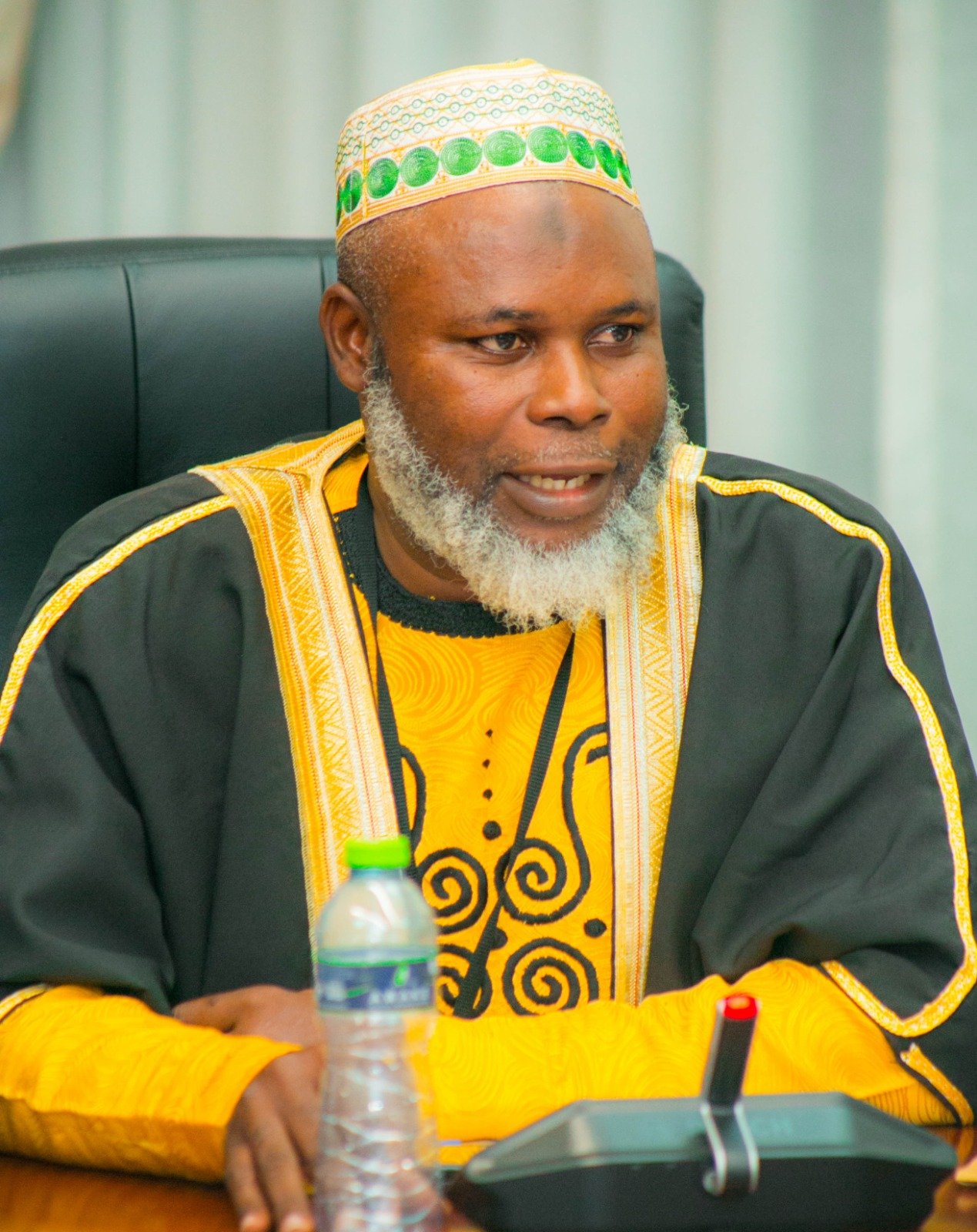Fruitful Living
What Does It Mean That God is good? 5 Examples in Everyday Life (FINAL PART)
“Oh, taste and see that the Lord is good; blessed is the man who trusts in Him!” – Psalm 34:8
3. Protecting Us
GOD’S goodness is also evident in how He protects us, both from dangers we see and those we don’t. We’ve all heard stories of people narrowly avoiding accidents or harm because of an unexpected delay or change of plans. This is one of the ways God watches over us.
But His protection also extends to less obvious areas. Think of the workplace drama or gossip that never reaches your ears, the mistakes that could have been much worse, or the opportunities that didn’t work out only to lead to something better. These are all signs of God’s protective hand guiding and shielding us. Whether we recognise it or not, God is constantly working behind the scenes, orchestrating events for our good and safeguarding us from harm.
“The Lord will keep you from all harm—he will watch over your life.” – Psalm 121:7 (NIV)
4. Speaking to Us through Prayer
One of the clearest ways we experience God’s goodness is through prayer. Prayer is our direct line to God, the way we communicate with Him, share our hearts, and seek His guidance. Through prayer, God reveals His will, gives us peace, and answers our deepest longings, sometimes in ways we don’t expect.
God’s goodness is reflected in how He listens to our prayers. He answers in His perfect timing, whether it’s a “yes,” “no,” or “wait.” Even in His silence, He is working things out for our good, often providing direction through His Word, a feeling of peace, or the wisdom of others.
“This is the confidence we have in approaching God: that if we ask anything according to his will, he hears us.” – 1 John 5:14 (NIV)
5. Guiding Us
We make countless decisions each day, from the mundane to the life-changing, and in all of it, God is guiding us. His goodness is seen in the way He gently nudges our hearts, gives us wisdom, and leads us down the path He has set for us.
When we take time to pause and seek His guidance, God provides clarity and peace. Whether it’s through the Holy Spirit’s still, small voice or circumstances aligning in our favor, His guidance is always rooted in His goodness. He steers us away from harmful decisions and toward paths that fulfill His purpose for our lives.
“Trust in the Lord with all your heart and lean not on your own understanding; in all your ways submit to him, and he will make your paths straight.” – Proverbs 3:5-6 (NIV)
Conclusion
God’s goodness isn’t just an abstract idea or something we acknowledge when good things happen—it’s woven into every moment of our lives. From the breath we take each morning to the protection we often overlook; His goodness surrounds us daily.
The next time you’re tempted to only acknowledge God’s goodness when something monumental happens, take a step back and reflect on the small ways He shows up for you every single day. Whether through His protection, guidance, or simply waking you up to live another day, God is constantly demonstrating His goodness. And as Psalm 34:8 reminds us, “Oh, taste and see that the Lord is good; Blessed is the man who trusts in Him!”
When we recognise these everyday examples, we’ll find that God’s goodness is far greater than we can comprehend. It’s not limited by our circumstances—it’s a reflection of who He is.
By Rev. Dr Joyce Aryee, the author
Fruitful Living
Institution of Marriage in Islam (Pt.3)

Regarding sexual intimacy, it is also prohibited for a wife to demand money or gifts before allowing her husband to engage in sexual relations. Islam views this as a form of exploitation and sin. A marital relationship must be based on mutual love, respect, and affection rather than material gain.
Prohibition of sexual intercourse during menstruation
Islam has clear guidelines regarding sexual relations during certain times, particularly when a woman is menstruating. The Qur’an prohibits sexual intercourse during menstruation, stating:
“And they ask you about menstruation. Say: ‘It is harm, so keep away from women during menstruation. And do not approach them until they are pure. And when they have purified themselves, then come to them from where Allah has ordained for you. Indeed, Allah loves those who are constantly repentant and loves those who purify themselves’” (Qur’an 2:222).
This verse emphasises the importance of refraining from sexual activity during menstruation due to physical and spiritual reasons. However, all other forms of affection and companionship are allowed, and husbands should continue to care for their wives during this time with love and respect.
Islamic law encourages cleanliness and personal hygiene, especially in matters related to physical intimacy. After the menstruation period ends, it is recommended that the wife perform ghusl (ritual purification) before resuming sexual relations with her husband.
Rights of Children on Parents
Islam emphasises the rights of children on their parents, as marriage is the foundation of family life. Parents are obligated to provide their children with proper care, education, and moral guidance. The Qur’an states: “O you who have believed, protect yourselves and your families from a Fire whose fuel is people and stones…” (Qur’an 66:6).
This highlights the parents’ responsibility to raise their children with a strong sense of morality and faith. Children have the right to a good name, religious upbringing, and education, and they must be treated with fairness and love.
In Ghana’s law, there is Children’s Right Act, Act 560 (1989) which states among other things,
• Section 4, Right to Name, Nationality and secure a Birth Certificate for the child
• Section 6(3) (a&b), protection from neglect, provide good guidance, care etc
• Section 8(1&2), Right to education and wellbeing (medical care, diet, clothing, shelter).
How Do Married Couples Resolve Their Differences in Islam?
Islam provides clear guidelines for resolving marital conflicts in a just and compassionate manner.
The Qur’an instructs that in the event of marital discord, both parties should seek reconciliation:
“If you fear dissension between the two, send an arbitrator from his people and an arbitrator from her people. If they both desire reconciliation, Allah will cause it between them” (Qur’an 4:35).
The goal is always to preserve the marriage and restore harmony. If reconciliation is not possible, Islam permits divorce as a last resort, but it is considered the most disliked permissible act in the eyes of Allah (SWT).
Rewards of Marriage in Islam
Marriage in Islam is not only a social institution but also an act of worship that brings great rewards. The Prophet Muhammad (PBUH) said: “When a man marries, he has fulfilled half of his religion, so let him fear Allah regarding the remaining half” (Bayhaqi, Shu’ab al-Iman).
Married couples are rewarded for fulfilling their marital responsibilities, showing kindness to each other, and raising righteous children who contribute positively to society.
Scholarly Thoughts About Marriage in Islam
Islamic scholars, such as Imam Al-Ghazali, have discussed marriage as a means of controlling desires and fulfilling one’s spiritual obligations. Modern scholars like Sheikh Yusuf Qaradawi also stress the importance of mutual respect and understanding in marriage, ensuring that both partners can grow spiritually and emotionally within the marriage.
Conclusion
In conclusion, marriage in Islam is a divinely ordained relationship based on mutual love, respect, and responsibility. By following the guidance of the Qur’an and Sunnah, and observing the legal frameworks in place, such as Ghana’s Mohammedan Ordinance, we can establish strong and harmonious marriages that contribute to the moral and spiritual development of society. May Allah (SWT) guide us to fulfill our marital responsibilities with sincerity and love.
The Writer is Kpone Katamanso Municipal Chief Imam, Democracy and Governance Law Student, UCC, Member of Ghana National Association of Certified Counsellors Certified by Ghana Psychology Council
References:
1.Qur’an, Surah Ar-Rum (30:21)
2.Qur’an, Surah An-Nisa (4:34, 4:4, 4:19, 4:35)
3.Qur’an, Surah Al-Baqarah (2:187, 2:221, 2:222, 2:223)
4.Qur’an, Surah At-Tahrim (66:6)
5.Ibn Majah, Hadith 1845, 1905
6.Tirmidhi, Hadith 1162, 1084
7.Bukhari, Hadith 5090
8.Children’s Right Act, Act 560 (1989)
9.Bayhaqi, Shu’ab al-Iman
10.Al-Ghazali, Ihya Ulum al-Din
11.Qaradawi, The Lawful and Prohibited in Islam
Fruitful Living
Adansi North DCE marks birthday on Farmers’ Day

It was a momentous day for the Adansi North District Chief Executive, Eric Kwaku Kusi, last Friday November 8, as the 40th National Farmers Day district level celebration held here at Adansi Adokwai coincidentally fell on his birthday.
On a low-key, Mr Kusi momentarily took to the floor, to exhibit his dancing skills responding to cheers of “Happy Birthday to you” from the audience, to which he also responded with a gesture of thanks and praises to God, as he stepped out to address the gathering.
He was joined on the dancing floor by the assembly members singing praises to God for the life of their indefatigable DCE.
In his address, Mr Kusi commended farmers in the Adansi North and the country as a whole “who tirelessly cultivate the land to feed all of us in our communities.”
He said the government realising the important role agriculture played in the economy and the challenges facing farmers due to the effects of climate change was rolling out initiatives and policies to support climate-resilient agriculture, including agriculture insurance programme for farmers.
In all 16 farmers were awarded various prizes for their contribution to food sufficiency in the country.
Francis Appiah, 41, who hails from Adokwai was adjudged the District Best Farmer for 2024, and took home a tricycle and other assorted items. The first runner-up prize went to Sakyi Kwabena also from Adokwai and the second runner-up went to Kwame Gyamera from Dompoase.
From Alhaji Salifu Abdul-Rahaman, Adansi Adokwai





